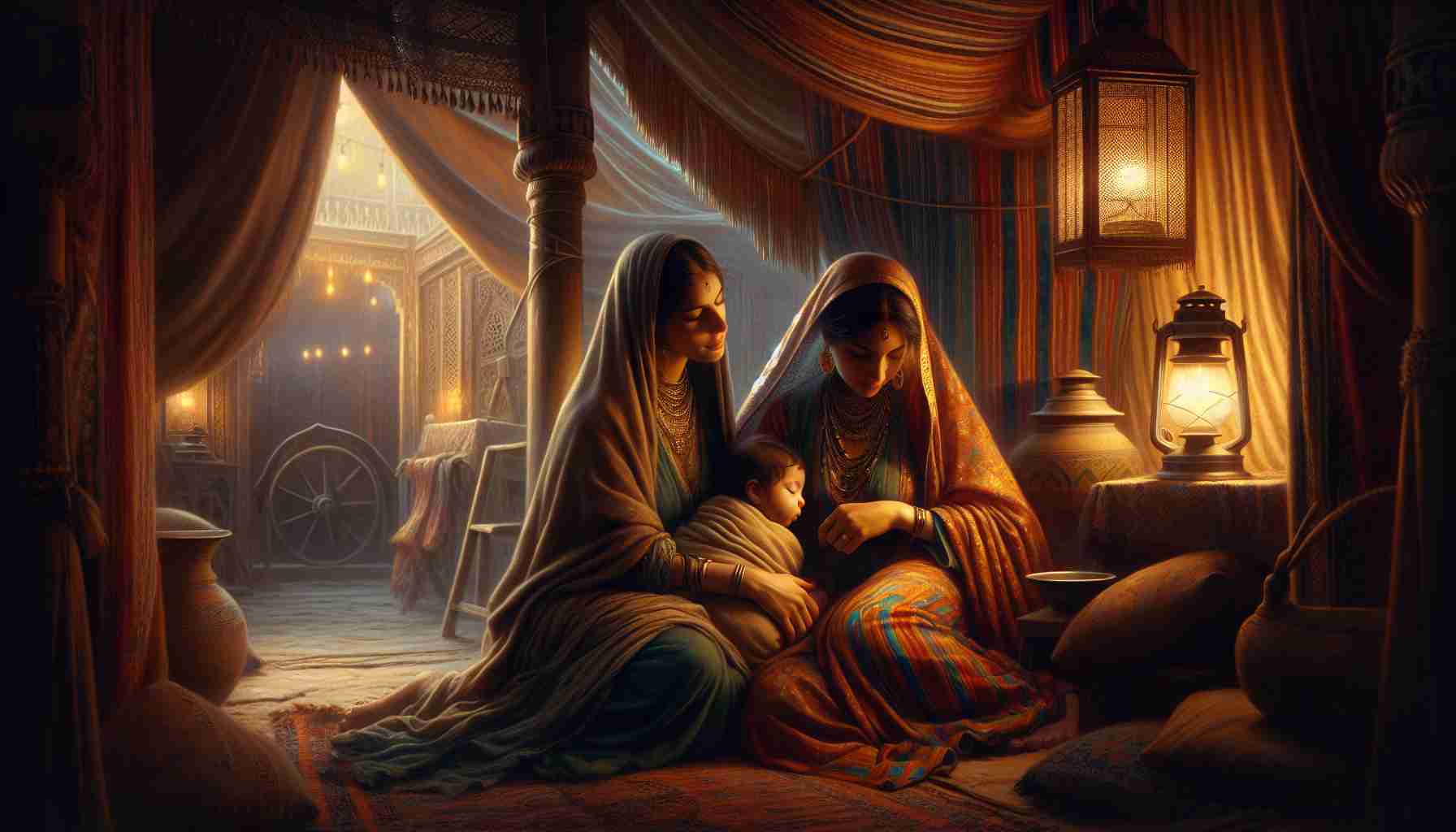

I was a servant girl in the tents of Jacob, no older than thirteen when I first noticed the quiet war between two women who were meant to be sisters. Not by blood—their bond should have been stronger than that. It was forged by tears, jealousy, and bargains whispered under the moonlight.
Leah was the first wife. I remember how she moved softly, always watching, always hoping Jacob would look at her the way he looked at Rachel. She tried—oh, she tried—to win his heart. With each child she bore, her eyes lit with hope. "Now he will love me," she said after giving birth to Reuben, her first son. But his heart remained with Rachel, the beautiful one. The chosen one.
Rachel, though, had no children for many years. Her sorrow blistered in silence at first. Then one day, I overheard her weeping near the sheep pens. “Give me children, or I shall die,” she had cried out to Jacob. Her voice wasn’t angry, just hollow. Empty like a woman trying to hold something that wasn’t there.
That was the moment everything changed. I saw Rachel begin to fight—not with fists, but with strategy. She gave Jacob her maidservant, Bilhah, hoping that by claiming the child as her own, she might feel full again. Watching from outside the tent, I saw her cradle the newborn like he had come from her own body, whispering the name Dan, “God has judged me.”
Not to be outdone, Leah gave Jacob her own maid, Zilpah. The rivalry became like a race—child by child, name by name. Gad. Asher. Naphtali. Issachar. Each name told a story, each child another attempt to win love, to prove worth.
But I didn’t understand then what I would later, much older and with children of my own: they weren’t just fighting for favor. They were shaping a future.
One evening, I was tying herbs when Leah called me to her side. Her eyes, once filled with longing, now looked calm. She cradled little Zebulun in her arms.
“I once cried because I was unloved,” she said without me asking. “But now I see—God hears. God sees. He takes a broken heart and fills it, not just with love, but with purpose.”
That night, under the stars, I saw Rachel too—touching the small head of her last-born son, Joseph. Her silence was different now. Peaceful.
Two women. One husband. Yet from their pain and prayers came twelve sons—twelve tribes. The roots of Israel.
I once thought I was just a maid in the corner of the tent. But I realize now—I witnessed something holy. Through their struggle, I learned that even in sorrow, even in rivalry, God weaves a future.
And if He could bring a nation from a broken household, maybe He could bring meaning from mine too.
I was a servant girl in the tents of Jacob, no older than thirteen when I first noticed the quiet war between two women who were meant to be sisters. Not by blood—their bond should have been stronger than that. It was forged by tears, jealousy, and bargains whispered under the moonlight.
Leah was the first wife. I remember how she moved softly, always watching, always hoping Jacob would look at her the way he looked at Rachel. She tried—oh, she tried—to win his heart. With each child she bore, her eyes lit with hope. "Now he will love me," she said after giving birth to Reuben, her first son. But his heart remained with Rachel, the beautiful one. The chosen one.
Rachel, though, had no children for many years. Her sorrow blistered in silence at first. Then one day, I overheard her weeping near the sheep pens. “Give me children, or I shall die,” she had cried out to Jacob. Her voice wasn’t angry, just hollow. Empty like a woman trying to hold something that wasn’t there.
That was the moment everything changed. I saw Rachel begin to fight—not with fists, but with strategy. She gave Jacob her maidservant, Bilhah, hoping that by claiming the child as her own, she might feel full again. Watching from outside the tent, I saw her cradle the newborn like he had come from her own body, whispering the name Dan, “God has judged me.”
Not to be outdone, Leah gave Jacob her own maid, Zilpah. The rivalry became like a race—child by child, name by name. Gad. Asher. Naphtali. Issachar. Each name told a story, each child another attempt to win love, to prove worth.
But I didn’t understand then what I would later, much older and with children of my own: they weren’t just fighting for favor. They were shaping a future.
One evening, I was tying herbs when Leah called me to her side. Her eyes, once filled with longing, now looked calm. She cradled little Zebulun in her arms.
“I once cried because I was unloved,” she said without me asking. “But now I see—God hears. God sees. He takes a broken heart and fills it, not just with love, but with purpose.”
That night, under the stars, I saw Rachel too—touching the small head of her last-born son, Joseph. Her silence was different now. Peaceful.
Two women. One husband. Yet from their pain and prayers came twelve sons—twelve tribes. The roots of Israel.
I once thought I was just a maid in the corner of the tent. But I realize now—I witnessed something holy. Through their struggle, I learned that even in sorrow, even in rivalry, God weaves a future.
And if He could bring a nation from a broken household, maybe He could bring meaning from mine too.